MS-LS2-4
Construct an argument supported by empirical evidence that changes to physical or biological components of an ecosystem affect populations.
-
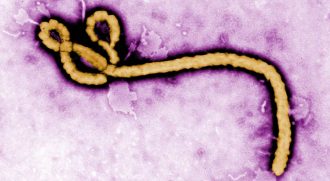 Health & Medicine
Health & MedicineExplainer: What is Ebola?
A virus is behind the hemorrhage-inducing infection called Ebola. It causes fevers and often intense bleeding — seemingly from anywhere and everywhere.
By Janet Raloff -
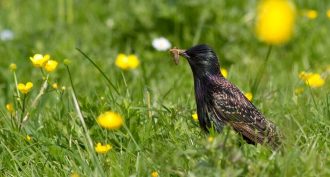 Environment
EnvironmentBug-killer linked to decline in birds
One of the most popular chemicals used to protect crops from bugs may also take a toll on birds, a Dutch study finds. U.S. farmers also rely on these insecticides, a second study finds.
By Stephen Ornes and Janet Raloff -
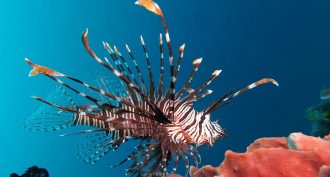 Animals
AnimalsTeen shows salty lionfish are getting fresh
Lauren Arrington kept spotting lionfish in rivers near her Florida home. Her science fair project probed how much fresh water these ocean fish could stand — and led to a published research paper.
-
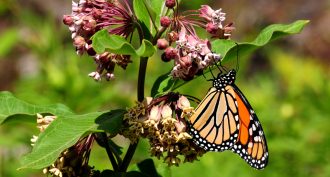 Animals
AnimalsSalted butterflies
The salt used on winter ice can alter the bodies of summer's butterflies. Males develop larger muscles and females get bigger brains.
-
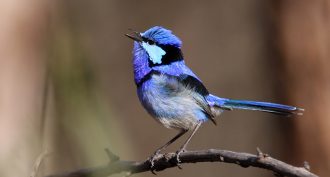 Animals
AnimalsA library of tweets (and howls and grunts)
The Macaulay Library houses a world of animal sounds. And now anyone with an Internet connection can check out this audio collection.
-
 Environment
EnvironmentNative ‘snot’
The ‘rock snot’ choking rivers may be native algae. Experts blame its sudden and dramatic emergence on changes in Earth’s atmosphere, soils and climate.
-
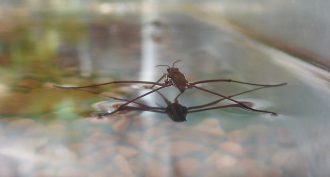 Animals
AnimalsTeen studies water strider disappearing act
As a child, Xidian Zhang loved to play with water striders. Now they’re gone, and pollution may be the reason. This teen’s findings earned him a spot at the 2014 Intel International Science and Engineering Fair.
-
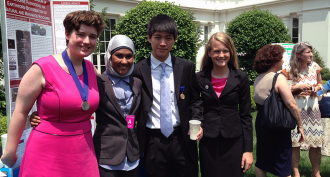
Science stars are on display at the White House
One hundred students from 30 states participated in the fourth annual White House Science Fair in Washington, D.C.
-
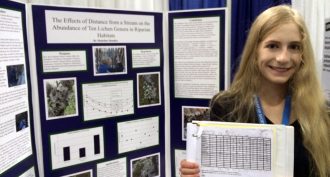 Plants
PlantsTaking a long look at lichen
Lichens may not look like much, but they play a vital role in our ecosystems. ISEF finalist Madeline Handley decided learn more about the lichens in her native Alaska.
-
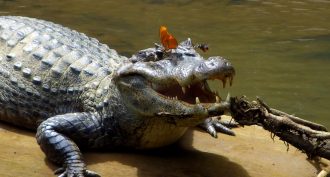 Animals
AnimalsThese insects thirst for tears
In some parts of the world, insects will drop by for a savory beverage. Interestingly, neither a croc — nor a scientist who offered his eyes up to ‘tear-sipping’ bees — seemed bothered much by the freeloaders.
By Janet Raloff -
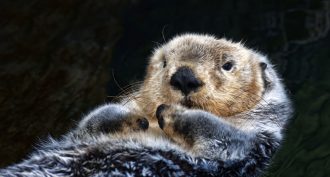 Animals
AnimalsSea otters picked up swine flu
A new study finds that large numbers of sea otters off of the U.S. Pacific coast have been exposed to the ‘pandemic’ type of this killer virus.
By Janet Raloff -
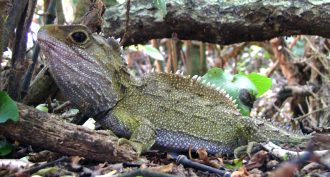 Animals
AnimalsWhen a species can’t stand the heat
When temperatures rise, New Zealand’s tuatara produce more males. With global warming, that could leave the ancient reptile species with too few females to avoid going extinct.